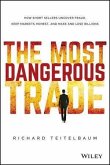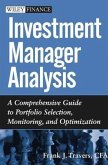A corporate guide to crisis management in volatile financialmarkets Current financial crises in Argentina, Japan, and Turkey arebeing played out on the front pages of newspapers, and these arejust the most recent financial crises that have rolled across theglobe in the last decade and whose far-reaching impact hurtsbusiness around the world. Dangerous Markets: Managing inFinancial Crises recognizes that no global corporation orfinancial institution can afford to ignore the potential of afinancial storm and will help top management and financialprofessionals navigate through this often disastrous maze. While many books discuss financial crises and theirramifications, none has presented an action plan for managing thesestorms--until now. Dangerous Markets: Managing in FinancialCrises presents a method that allows executives and financialprofessionals to recognize the warning signs of a financial crisisand act appropriately before the situation spirals out of control.Based on years of research and practice in cleaning up the mess,McKinsey consultants Barton, Newell, and Wilson reveal the warningsigns of potential financial catastrophes and provide uniqueprinciples that can be followed to shape and manage a strategy forsurvival.
Dieser Download kann aus rechtlichen Gründen nur mit Rechnungsadresse in A, B, BG, CY, CZ, D, DK, EW, E, FIN, F, GR, HR, H, IRL, I, LT, L, LR, M, NL, PL, P, R, S, SLO, SK ausgeliefert werden.









